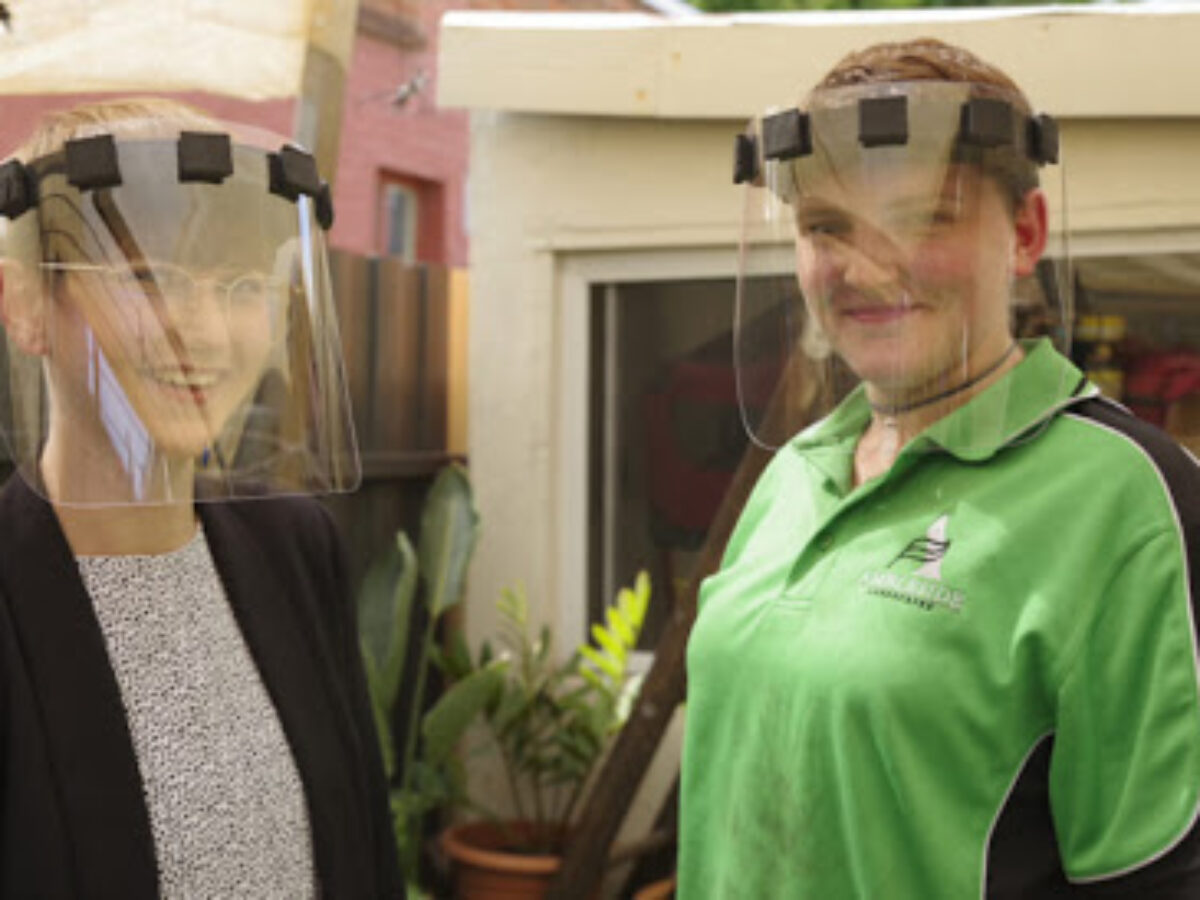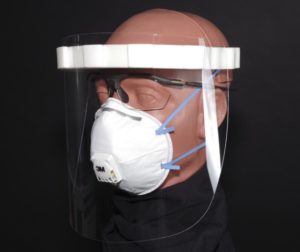PPE designed for speed in the covid-19 era

The pivots by local companies to meet Australia’s PPE needs have gained coverage in the mainstream press and been a source of pride for the country’s manufacturing sector.
This week businesses such as Me3D, Free 3D Hands and the FAB9 makerspace have had their efforts to 3D print visors to protect against Covid-19 infection highlighted. This follows news last week that packaging company Detmold is gearing up to make 145 million respirator and surgery masks. Many others are rallying to churn out important protective gear.
The last two weeks have also been hectic for a new partnership between high-end hi-fi company Kyron Audio and Andrew Rogers Industrial Design, both in Adelaide. The two companies went from an idea a fortnight ago to volume production of face shields on Tuesday, sold through new business Ned's Head.
“As industrial designers, we always feel that it's important to make a difference,” Andrew Rogers, founder at ARID, tells @AuManufacturing of the ethos shared by the JV partners.
Rogers has over 30 years of industrial design experience, is a fellow of the Design Institute of Australia, and has won numerous industry awards, including the Good Design Awards Gold last year. He has helped bring over 300 products to market.
“When we first looked at it, we were sort of thinking, ‘okay, we'll get a 3D printer and we'll buy some sheet material and we'll knock something up really quick and dirty.’ That thought lasted for about an hour or so. And then I had a bit of a Eureka moment and thought, ‘no, we need to be making a lot more than a couple of hundred a day. We need to be able to make tens of thousands a day.’”
The two weeks were filled with iterating and testing, with 19 prototypes, all done in-house. Rogers estimates that using an offshore prototyping service under usual circumstances would've meant months and months of back and forth.
The key for the project was not just design for manufacture, but design “for immediate distribution and dispatch.” Tooling is simple and cheap, and die-cutting is used for the PET face shields. (There is also a recyclable version of the product.)
“Injection moulding is fast, but not fast enough. The process that we're using is capable of producing many thousands per hour [and] we can, if there's a need for it, make multiple tools in multiple locations,” Rogers adds.

“In less than a fortnight; 19 prototypes, testing, tool trials completed, materials secured, website, sales and distribution operational, orders in place and first sales secured from the eastern states neds-head is ready to help protect our essential service providers with face shields” – Andrew Rogers.
(https://www.linkedin.com/posts/andrew-arid_industrialdesign-covid19-businesssa-activity-6652549082223124480-SEbi)
“We have a factory set up in Melbourne that's ready to run. We have a factory set up here in Adelaide that is running now and we can quite easily set up another facility in Sydney or Queensland as well. Or Western Australia for that matter. It's technology that is easy to use.”
There are only two parts to the product, no assembly required, and no adhesives used.
Speed is vital, but not the only consideration.
An intensive care nurse was brought in as a consultant, informing other design choices. The shield can be easily donned and doffed by essential service workers (the target audience) or others, and removed and disposed of with only two fingers and without a wearer touching their face.
The simple, two-piece construction can be easily disassembled for cleaning in batches.
“That means that they can be reduced and that they can be reused after being sterilised… If, for example, you had a second shift and you didn't have enough of these to go around, they could all be disassembled, sprayed with isopropanol and then reassembled again and reused and be clean,” Rogers explains.
“Most of the other products that you see use adhesive and they have porous, elastic bands and lots of very tricky, intricate areas to clean.”
The nation’s capacity to make what it needs in this crisis has become a hot topic. Rogers believes that it is important to maintain local capabilities around design and development of products. He has no issue with mass-producing items overseas, but the need to maintain local production for situations like the current pandemic has become obvious.
Also important is clarity around what exists around the design, engineering, tooling and other inputs needed for manufacture. There have been directories set up in response to Covid-19, but a permanent and regularly-updated supplier directory is needed, Rogers believes.
“This is something that needs to be facilitated at the government level, and it needs to be something that is audited and maintained properly,” he suggests.
“At the moment, everybody is running around trying to find who can do things. If that kind of information was just put together and maintained properly, it would make that initial rush to gather information much smoother and much easier.”
Featured picture: neds-head.com
– Brent Balinski, editor, @AuManufacturing
Subscribe to our free @AuManufacturing newsletter here.
@aumanufacturing Sections
Analysis and Commentary Awards casino reviews Defence Gambling Manufacturing News Online Casino Podcast Technology Videos





